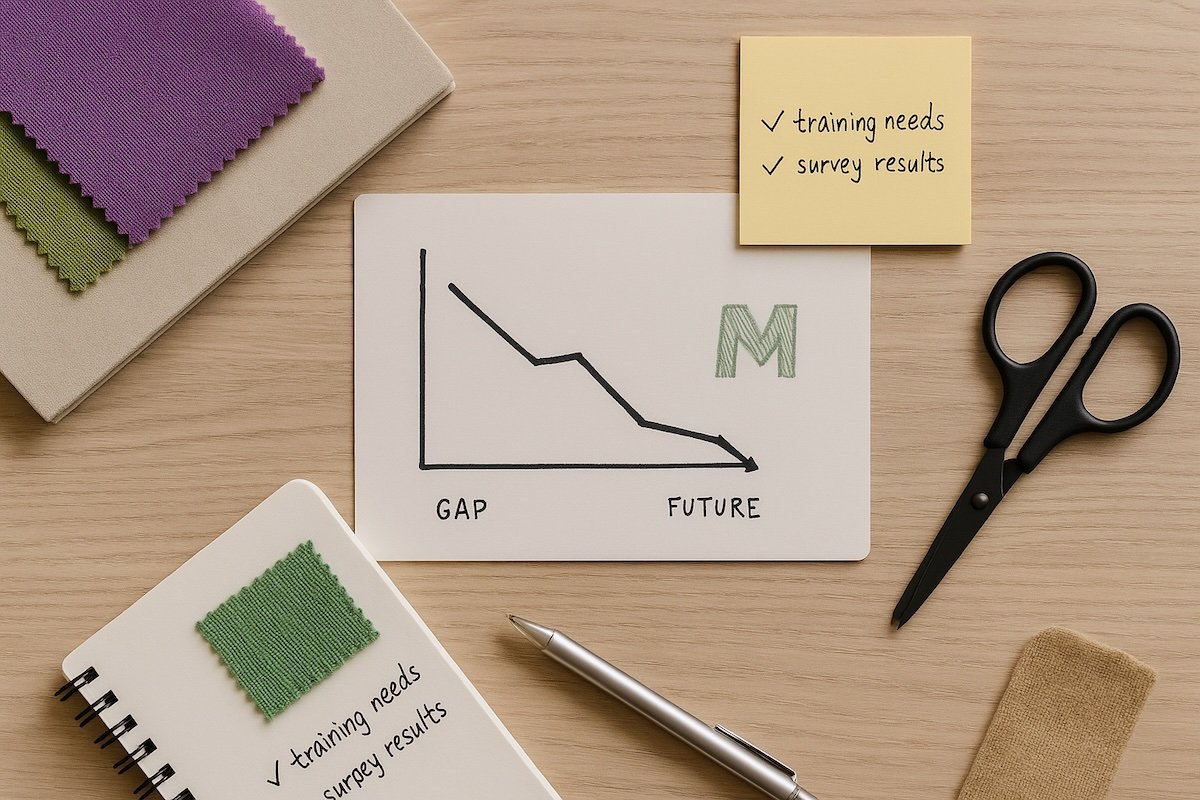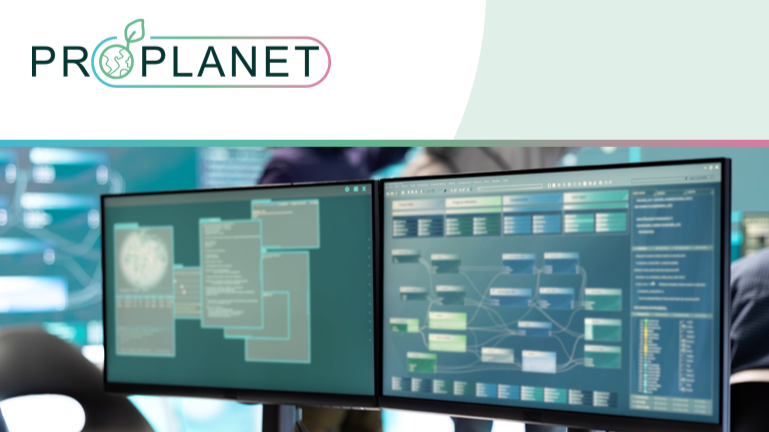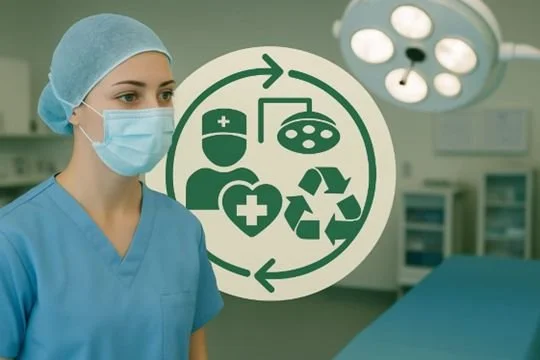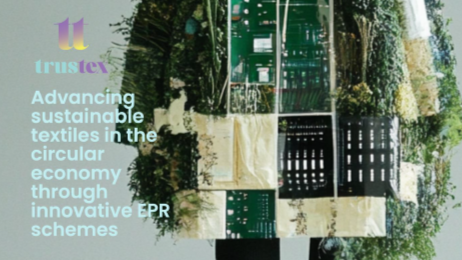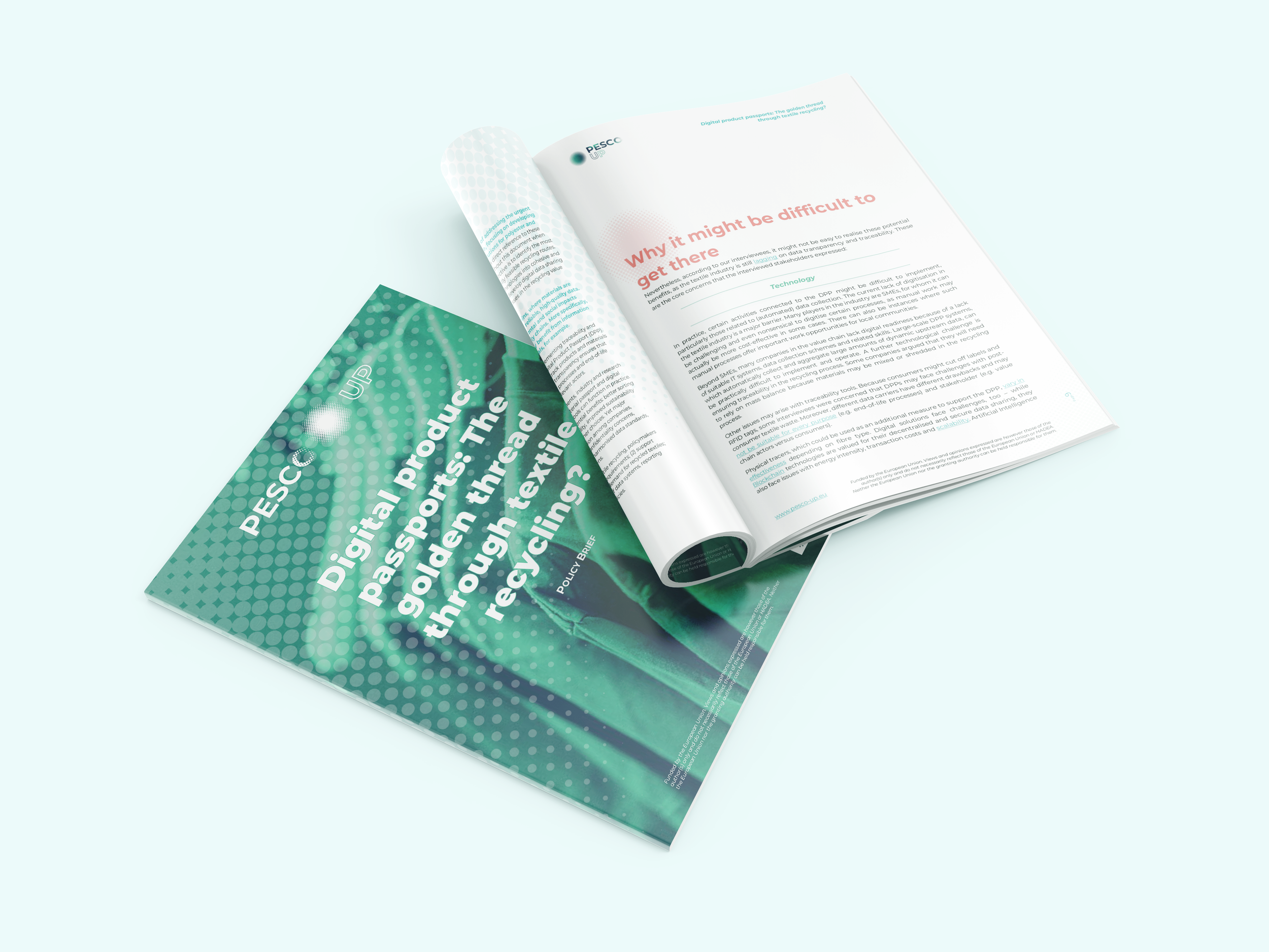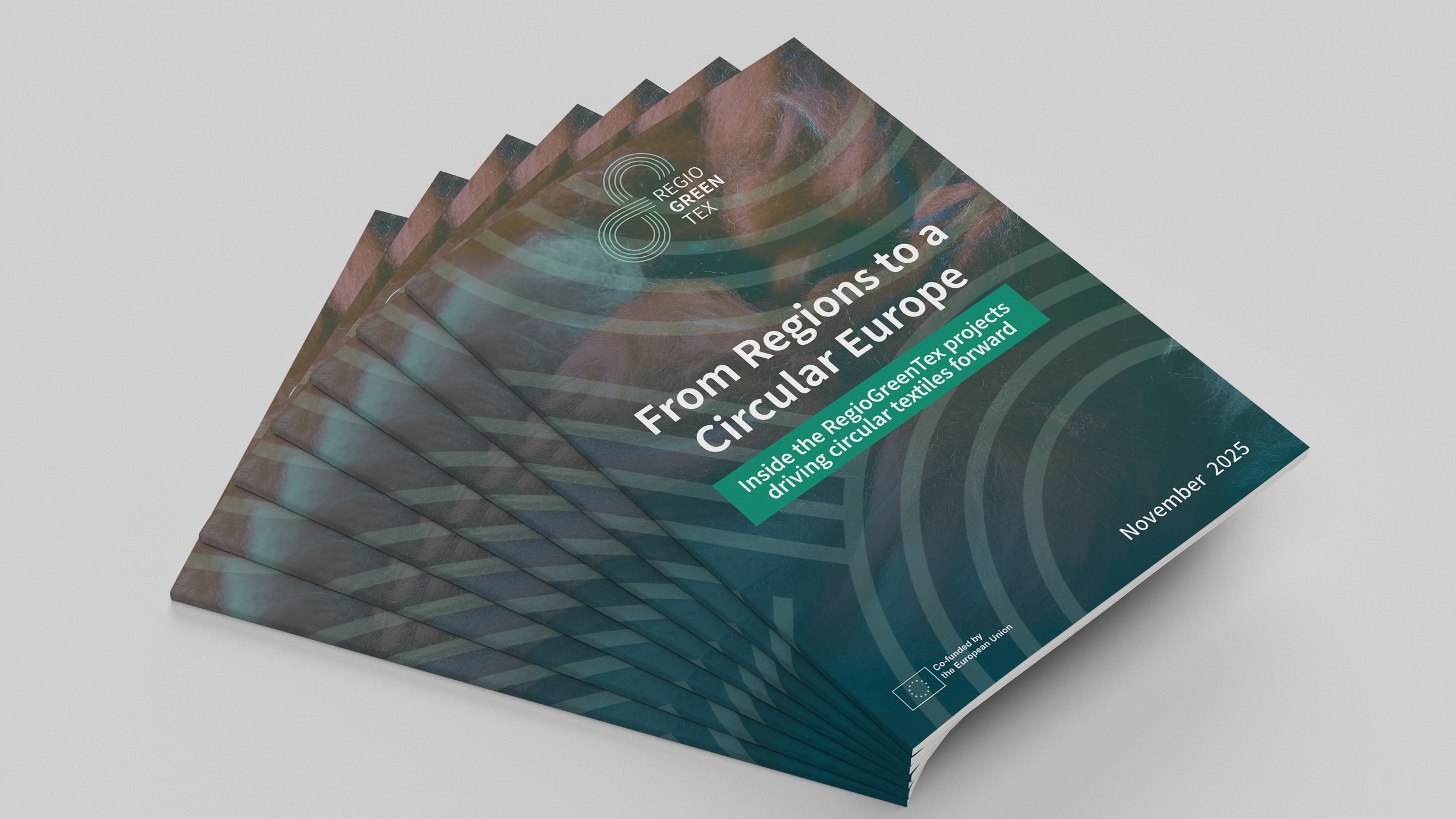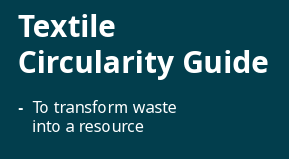
Publications
Discover the publications from the ECOSYSTEX community and its members.
Videos are available on ECOSYSTEX’s YouTube channel.
Filter by projects
- AEQUALIS4TCLF 2
- All 70
- CALIMERO 3
- CEMTex 1
- CISUTAC 6
- Colour4CRAFTS 1
- ECOSYSTEX 3
- EFFECTIVE 4
- HEREWEAR 3
- Hemp4circularity 1
- IMASUS 1
- IRISS 4
- LIFE TREATS 1
- My-Fi 2
- New Cotton 5
- PESCO-UP 1
- PROPLANET 8
- RegioGreenTex 17
- SCIRT 8
- SOLSTICE 5
- SUSTRACK 9
- T-Rex 7
- TRUSTEX 1
- VERDEinMED 1
- VETRINE 2
- Waste2BioComp 1
- tExtended 1
Understanding Industry and Education Needs in Sustainable Textiles and Fashion
IMASUS conducted two international surveys and a follow-up analysis to better understand the current needs, gaps, and opportunities in sustainable and innovative textile materials.
The goal was simple: to listen to the people shaping the future of textiles with researchers, educators, designers, entrepreneurs, and creative hubs involved and using their input to guide the development of the IMASUS open knowledge platform.
PROPLANET’s Replication Tool
The PROPLANET Replication Tool is an open‑source web application designed to help users explore PFAS‑free coating technologies for glass, metal, and textiles, offering an accessible way to compare formulation components, assess performance, and evaluate environmental and safety profiles.
CEMTex’s Green Procurement: Medical Textiles and Sterilization Thematic Seminar
On 15 January 2026, a thematic online seminar on Green Procurement – medical textiles and sterilization brought together professionals and experts to explore how sustainability and circularity can be effectively integrated into public procurement practices. Organised within the InterregEurope CEMTex framework, the webinar focused on practical approaches and real-world insights from the field of circular and medical textiles.
TRUSTEX’s Draft Report on EPR scheme analysis
This draft report provides an analysis of textile EPR systems across eleven countries,offering a comparison of regulatory approaches, implementation challenges, and emerging best practices.
PESCO-UP’s “Digital product passports: The golden thread through textile recycling?”
This first PESCO-UP policy brief aims to contribute timely evidence to the ongoing debate on traceability and transparency in the textiles sector. This comes at a critical moment when the Delegated Act for Textiles under the Ecodesign for Sustainable Products Regulation (ESPR) is still under preparation.
VERDEinMED launches Knowledge Platform
VERDEinMED’s Knowledge Platform brings together cutting-edge medical insights, expert resources, and practical tools to empower healthcare professionals and researchers worldwide.
RegioGreenTex: From Regions to a Circular Europe
This brochure summarizes pilot results, highlighting progress, impact, and scale-up opportunities, while guiding companies and regions toward collaboration and market adoption.
RegioGreenTex: Textile Circularity Guide – for a circular textile future
As part of the RegioGreenTex project, the Textile Circularity Guide outlines how textile waste can be turned into resources through circular business models, digital tools, and collaboration. It provides practical strategies, business development tools, digital solutions, and showcases successful European collaborations.
AEQUALIS4TCLF project: D3.5 EU TCLF Skills Strategy
The EU TCLF Skills Strategy sets a shared direction for developing the skills that the sector needs to thrive in the green and digital transitions. It identifies key gaps, proposes coordinated actions for industry and education, and aims to ensure that companies can access the talent they require while workers benefit from new opportunities.
RegioGreenTex's Italian GreenTex Hub: Boosting Circularity in Textile Sector Services and Opportunities from Italian Textile Ecosystems
This deliverable is a practical guide to driving circular transformation across the textile value chain, providing tools and frameworks for companies, associations, and policymakers to scale sustainable practices effectively.
RegioGreenTex: The Circular Garment
Read more and watch the documentary to see how RegioGreenTex created ‘The Circular Garment’, a durable, unisex piece made from recycled fibers using innovative, circular textile techniques, developed through collaboration across 12+ SMEs and research centers in 8 European regions.
RegioGreenTex Training Packages
In order to support professionals in their transition to a more sustainable and circular textile sector, training packages were developed by organizing and evaluating existing digital training resources. Several key categories for training have been identified, including value chains, sustainable design, production, consumer behavior, end-of-life options and recycling. These RGT Training packages contribute to a smoother transition towards more sustainable practices across the industry.
RegioGreenTex: Circular Economy Quiz
Test your knowledge with the RegioGreenTex interactive ‘Circular economy quiz’ and deepen your understanding of sustainable textiles.
T-REX project report: business models & financial viability
As part of the T-REX Blueprint for scaling textile-to-textile recycling in Europe, this report presents key insights from the Techno-Economic Assessment (TEA) on the business viability of circular textile systems.
T-REX life cycle assessment & plastic leakage analysis report
As part of the T-REX Blueprint for scaling textile-to-textile recycling in the EU, T-REX presents a summary report of the Life Cycle Assessment (LCA) and Plastic Leakage Analysis conducted by consortium partner Quantis.
Green VETRINE free online course
Green VETRINE has been developed by leading European training organisations in the textile and clothing sector, and delivers a European certificate for successful completion. The course is also available in seven languages.
T-REX’s technical guidance for recyclable garments
This guidance brings together key insights from research conducted during the T-REX project, offering practical, detailed advice on how to create recyclable garments while stepping away from the mono-material approach.
T-REX project reveals textile recycling blueprint
Following the successful completion of the 3-year innovation programme, the T-REX Project is pleased to present its recommendations for the scaling of textile-to-textile (T2T) chemical recycling in Europe.
T-REX Project Report: Piloting a data model for textile-to-textile recycling
The textiles industry faces major environmental challenges, from high carbon emissions to overwhelming amounts of post-consumer waste. To tackle these issues, the T-REX Project has been working to build a blueprint for a closed-loop system for textiles.
RegioGreenTex Infrastructure Database
To accelerate the green transition in the textile sector, RegioGreenTex is mapping accessible R&D infrastructure across Europe, from testing laboratories and pilot lines to specialized machinery and expert support. This database helps SMEs identify the right expertise and equipment before making major investments themselves.

